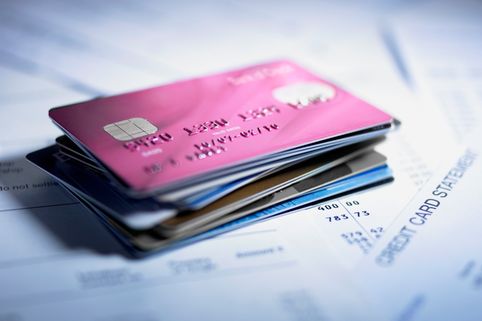Credit card debts haunt a lot of people and especially during times of recession things have taken a worse turn for people who suffering from such debts. Regular payments are considered as the key for staying out of credit card debt, but many of us are unable to follow this golden rule due to temptation and lack of proper financial planning. It has been seen that credit card companies can increase the interest rate by around thirty percent, if a consumer fails to make payments within the stipulated time frame. Credit card debt would have an invariable effect on one’s credit rating which can cause several grave financial problems. Here are lists ways through you can steer clear of debts resulting through credit cards.
Emergency Fund
A lot of people succumb to credit card debt due to the lack of proper emergency fund. In times of financial crisis people find it easier to use a credit card to meet their immediate needs, but in a way it creates an excessive amount of debt. People with an emergency fund can utilize at the crucial times without depending on credit cards.
Affordability
Credit card debts often develop when a person ends up spending more than he can afford with his actual income. Credit cards need to be used only when you are sure that you will be able to make the payments on time with your current level of income. When timely credit card payments are made then one does not have to worry about debts and they can simply enjoy the benefits of credit cards.
Stay Away From Balance Transfers
Credit card companies charge a lot of fees for transferring balances from one credit card to another. Balance transfers should only be done when a particular credit card provides a lower rate of interest for payments. In many cases people fall prey to credit card debt due to excessive balance transfers.
Timely Payments
One of the simplest ways of staying out from credit card debts is to make payments on time so that late charges do not get levied. Another reason due to which timely payments help is because credit card companies can alter interest rates for irregular payments.
Payment Of Full Balance
One should try to pay the complete balance every month in order to avoid credit card debt hassles. Rollover balances can wreck havoc on your finances as gradually the unpaid balances can snowball into huge credit card debts.
Know The Warning Signs
Credit card debt often develops when people do not notice the signs that imply the impending doom. When one fails to make credit card payments consistently, then he should take a lot at his finances and the total debt. It is important to address the problems related to your finances, so that proper steps can be taken before you get perched on the mountain of credit card debt.
Evade Cash Advances
Usage of cash advances is considered as the worst form credit card utilization. When one starts to avail cash advances through credit cards then it means that your finances have gone awry. Utilization of cash advances is one sign of credit card debt.
Comprehend Terms Of Credit Card
Understanding all the terms and conditions of your credit card is necessary so that you have accurate information for interest rates and its subsequent application. One should also know about instances when the credit card companies can increase the rate of interest. Credit card debts can be avoided to a large extent when customers are aware of the aspects which can increase their pending credit card balances.
Avoid Too Many Cards
It is always recommended that people should not have too many credit cards as they will have to pay more to keep up with the pending balances. Most credit cards also means that total amount of credit limit becomes quite high. With high credit limits, people are often ending up making purchases equivalent to the credit limit. Repaying debts arising out of several credit cards could be quite taxing and would cause a lot of financial strain on your life. Hence it is imperative to just have one or two numbers of credit cards, so that you can strike a balance with your income and expenditure.

